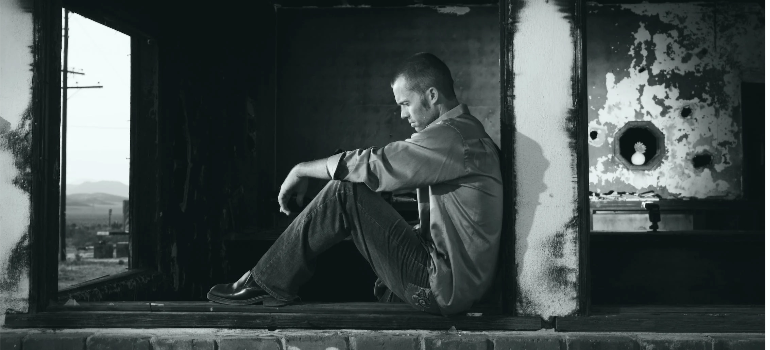Often called “benzos,” benzodiazepines include many household prescription drugs such as Valium and Xanax. Such drugs are easily abused, and the long-term effects of benzodiazepine addiction can be profound. At Harmony Ridge Recovery Center WV, we’re no strangers to benzo addiction. As specialists in addiction treatment, we also recognize a distressing reality. The impact of benzodiazepine addiction intensifies progressively, making recovery increasingly difficult over time.
In this article, we delve into the daunting landscape of the long-term effects of benzodiazepine addiction. We hope that understanding these intricacies can help our readers and communities to better grasp the impact of addiction.
A List of Long-Term Effects of Benzodiazepine Addiction
First and foremost, it’s crucial to start with the effects of prolonged benzo addiction themselves. People fighting addiction to benzodiazepines will experience many adverse effects, including physical, psychological, and social ones.
That said, we must emphasize that not everyone will experience the same symptoms and long-term effects. Many factors can affect one’s experience, including:
- Addiction duration and severity
- Polydrug use, i.e., using other substances alongside benzodiazepines
- Dual diagnosis, i.e., the existence of mental health disorders alongside addiction
- Recovery capital, such as self-efficacy, character, financial resources, and support networks
- Physical health

Still, many of the following emerge as typical symptoms in most cases of long-term addiction:
- Physical health deterioration
- Psychological health consequences
- Social and interpersonal effects
#1 Physical Health Effects
First, the enduring consequences of benzodiazepine addiction extend deep into physical health. In this sense, benzo addiction comes with a spectrum of distressing impacts:
- Neurological Impact on Brain Function—Prolonged benzodiazepine use disrupts brain function, leading to cognitive deficits, memory impairment, and emotional instability. The intricate balance of neurotransmitters becomes skewed, perpetuating dependence and hindering cognitive clarity.
- Gastrointestinal Issues and Metabolism Disruption—Long-term benzodiazepine abuse can trigger gastrointestinal problems such as nausea, vomiting, and constipation. Metabolism disruption often results in weight fluctuations and reduced nutrient absorption, impacting overall health.
- Cardiovascular Complications—The heart suffers under the weight of benzodiazepine addiction, as prolonged use elevates the risk of heart palpitations, irregular heartbeats, and high blood pressure. These issues heighten the likelihood of serious cardiovascular events.
- Respiratory Problems—The long-term effects of benzodiazepine addiction extend to respiratory function, leading to shallow breathing, reduced lung capacity, and heightened vulnerability to respiratory infections. This poses a grave threat, especially when combined with other health issues.
Understanding these detrimental physical effects is vital for anyone grappling with benzodiazepine addiction. These can also serve as identification signs of addiction if you observe any in your loved ones.
#2 Psychological Health Effects
The ramifications of benzodiazepine addiction on psychological well-being are equally profound. Effects of this type can include:
- Cognitive Impairments—Long-term benzodiazepine use disrupts cognitive function, leading to difficulties in reasoning, problem-solving, and decision-making. Mental agility and clarity suffer as a consequence.
- Emotional Dysregulation—Addiction to benzodiazepines often leads to emotional instability, marked by unpredictable mood swings and difficulty managing stress. The brain’s natural mechanisms for emotional regulation become compromised.
- Increased Risk of Anxiety and Depression—Paradoxically, prolonged benzodiazepine use heightens the vulnerability to anxiety and depression. As the body becomes reliant on the drugs, attempting to discontinue them can trigger intense emotional distress.
- Memory and Concentration Difficulties—Memory lapses and concentration problems become prominent among those grappling with benzodiazepine addiction. These impairments can severely impact daily functioning and quality of life.
These effects will also vary, but many of them become inevitable with long-term addiction.

#3 Social and Interpersonal Effects
Finally, the long-term effects of benzodiazepine addiction extend to social and interpersonal effects. These can mainly include:
- Strained Relationships and Isolation—Long-term benzodiazepine addiction often leads to strained relationships with family, friends, and loved ones. Isolation becomes a common consequence as the individual’s priorities shift towards obtaining and using the drug.
- Impaired Communication Skills—Addiction to benzodiazepines can erode effective communication, leading to misunderstandings and conflicts. Impaired judgment and emotional volatility further hinder the ability to connect with others.
- Decreased Work or Academic Performance—Long-term benzodiazepine addiction frequently translates into decreased performance at work or in academic settings. Concentration difficulties, absenteeism, and overall cognitive impairment contribute to this decline.
- Legal and Financial Consequences—The consequences of benzodiazepine addiction often extend beyond personal relationships and performance. Legal issues can arise from behaviors associated with addiction, leading to potential criminal charges. Financial strains result from the cost of acquiring drugs and the inability to maintain consistent employment.
Naturally, how such effects present themselves will also vary. Many will also depend on psychological well-being, as the two share a connection. Still, effects of this type tend to emerge with prolonged addiction.
Treatment Approaches for Benzodiazepine Addiction
With the above in mind, it should now be clear how damaging the long-term effects of benzodiazepine addiction can be. Spread across physical, psychological, and social effects, they tend to create a vicious cycle of addiction and self-destructive behavior.
For this reason, overcoming long-term addiction of any kind on one’s own is typically impossible. DIY detox and rehab aren’t just hard due to intense withdrawal symptoms; they can also prove highly dangerous. In many cases, intense cravings can lead to relapse – which opens up the chance of a dangerous overdose.
Benzodiazepines are no different in this sense, especially if one uses other substances alongside them. Therefore, benzo addiction treatment is always the safer and more effective way to uproot addiction.
That said, we understand that rehab may seem daunting. If that’s the case for you, this section delves into what rehab includes – and how it can help tackle addiction.

#1 Cognitive Behavioral Therapy (CBT)
Cognitive Behavioral Therapy (CBT) is a widely used psychological approach and a staple in most rehab programs. Cognitive Behavioral Therapy for substance use disorders has proven its effectiveness over the years and enjoys the industry’s favor. In this case, it can offer significant help to individuals facing the enduring challenges of long-term benzodiazepine addiction.
CBT focuses on identifying and reshaping negative thought patterns and behaviors. Through structured sessions with a trained therapist, individuals learn to recognize triggers for substance use, understand distorted thought processes that perpetuate addiction, and develop coping strategies to manage cravings and stress. This therapy equips individuals with practical skills to navigate the complex landscape of addiction recovery.
For those grappling with the long-term effects of benzodiazepine addiction, CBT can provide a tailored framework. Through it, they can address cognitive impairments, emotional dysregulation, and strained relationships, enabling them to rebuild their lives and regain control over their well-being gradually.
#2 Dialectical Behavioral Therapy (DBT)
Dialectical Behavior Therapy (DBT) is a specialized form of cognitive-behavioral therapy that enjoys as much proven effectiveness as CBT. Dialectical Behavior Therapy for addiction sees demonstrable success, especially for cases of dual diagnosis. Therefore, it also holds promising potential for aiding individuals facing the challenges of long-term benzodiazepine addiction.
DBT focuses on teaching essential skills in emotion regulation, distress tolerance, mindfulness, and interpersonal effectiveness. Through individual and group sessions led by trained therapists, individuals learn to identify and manage intense emotions that often contribute to substance use. DBT equips them with practical tools to navigate cravings, cope with stress, and develop healthier communication patterns.
For those dealing with the long-term effects of benzodiazepine addiction, DBT offers a comprehensive approach to address its challenges. According to NIH, it helps with emotional dysregulation, strained relationships, and diminished self-esteem, fostering resilience for sustainable recovery.

#3 Individual Therapy
Beyond these specific types of psychotherapy, individual therapy serves as a cornerstone of many rehab programs. Individual therapy for addiction offers personalized support to individuals grappling with addiction, from inpatient programs well into aftercare.
In one-on-one sessions with a trained therapist, clients have a safe space to explore their unique struggles and underlying factors driving addiction. Therapists employ evidence-based techniques to address the long-term effects of addiction, such as cognitive impairments and emotional dysregulation. Through this focused approach, individuals can gain insights into their addictive behaviors, develop coping strategies, and set personalized goals for recovery.
Individual therapy provides tailored guidance for mending strained relationships, enhancing self-esteem, and rebuilding life skills. By addressing these multifaceted challenges, individuals can gradually overcome addiction and work towards lasting well-being and sobriety.
#4 Group Therapy
Much like individual therapy, group therapy also offers a supportive setting for individuals contending with addiction. Group therapy can help individuals socialize, share their experiences, build self-esteem, and embrace a support network of their peers.
These sessions involve a small group of participants guided by a trained therapist, providing a space to share experiences, struggles, and insights. By connecting with peers who understand the long-term effects of benzodiazepine addiction, individuals can combat feelings of isolation, rebuild interpersonal skills, and gain a sense of belonging. Group members offer encouragement, practical advice, and a shared journey toward recovery.
This approach can be particularly beneficial in addressing emotional dysregulation, strained relationships, and social isolation that often accompany long-term addiction. Through group therapy, individuals gradually develop a support network that aids in the process of healing and building resilience.

#5 Holistic Therapy
Finally comes holistic therapy, a comprehensive approach to healing that encompasses a range of practices. This approach focuses on healing the mind and body at the same time, and commonly includes:
- Yoga—Physical postures, breathing exercises, and meditation to enhance body-mind connection
- Reiki—Energy healing to promote balance and relaxation
- Meditation—Mindfulness techniques to reduce stress and enhance self-awareness
- Nutrition—Focusing on a balanced diet to support physical and mental health
Holistic therapy for addiction recognizes the interconnectedness of physical, emotional, and spiritual well-being. By engaging in these practices, individuals can alleviate cognitive impairments, emotional dysregulation, and strained relationships. Holistic therapy empowers them to cultivate mindfulness, manage stress, and rebuild a sense of purpose.
Overcoming Long-Term Effects of Benzodiazepine Addiction and Achieving Recovery
With treatment approaches in order, we can now outline the process of recovery before concluding. If you’re looking for some peace of mind for yourself or your loved ones, this section should help illuminate a roadmap to recovery.
Recognition and Acceptance
The first and pivotal stride forward comes with the acknowledgment and acceptance of the problem. Recovery becomes attainable only when individuals recognize their dependency and seek assistance.
As we highlighted above, early identification is vital, as the signs of benzodiazepine addiction can be subtle yet impactful. Watch for indications like escalating doses, impaired memory, mood swings, and social withdrawal. Others might exhibit increased anxiety or sleep disturbances when attempting to reduce use. If addiction is only now rooting in, the symptoms we outlined above should help identify it.
By acknowledging these signs, you can intervene promptly and encourage loved ones to seek the professional help they need. The sooner you can do so, the better, as long as they also recognize the need for a solution.

Gradual Recovery Throughout Rehab
The second crucial stride involves a gradual recovery process within rehab. This journey encompasses multiple phases, beginning with detoxification and often integrating pharmacotherapy.
For this phase, personalized treatment programs allow individuals to address cognitive impairments, emotional dysregulation, and other long-term effects of benzodiazepine addiction uniquely. Such programs may incorporate therapy for addiction, like Cognitive Behavioral Therapy (CBT) and Dialectical Behavior Therapy (DBT), to foster healing on mental and emotional fronts. After rehab, continued aftercare sustains the recovery momentum, offering support and strategies for maintaining sobriety.
Maintaining Abstinence Post-rehab
And finally, the ultimate stride in triumphing over addiction is the steadfast maintenance of abstinence post-rehab. This step hinges on aftercare programs and the individual’s own commitment to recovery.
Robust support networks and tailored aftercare programs provide ongoing guidance for this phase, helping individuals navigate triggers and cravings. Support from family, friends, and recovery communities offers a safety net, while aftercare programs often include therapy sessions, relapse prevention strategies, and regular check-ins with professionals.
Such structured assistance solidifies the foundation of recovery. Through it, individuals can navigate the complexities of life after rehab and achieve true long-term abstinence.

Harmony Ridge Recovery Is Waiting for Your Call, Ready to Help
The long-term effects of benzodiazepine addiction span across physical, psychological, and social effects. Worse still, they only intensify over time. Therefore, recognizing the signs and seeking help promptly can significantly improve recovery outcomes.
At Harmony Ridge Recovery, we understand the intricacies of long-term benzodiazepine addiction. Our tailored rehab programs offer a comprehensive approach to addressing the impacts of addiction. Through individual and group therapies, holistic approaches, and ongoing aftercare, we aim to provide the necessary tools for individuals to overcome challenges and pave the way to lasting well-being and abstinence.
If you need help with benzo addiction for yourself or a loved one, we’re here for you. Please feel free to contact us today, and let our dedicated support help you regain control over your life.



